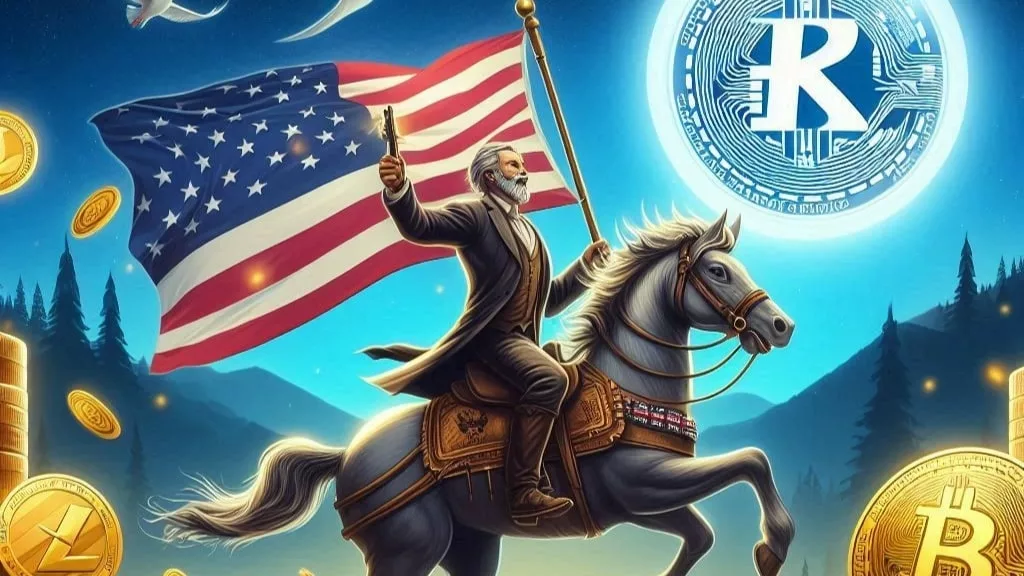
The push for crypto exchange-traded funds (ETFs) continues to gain ground as the Chicago Board Options Exchange (Cboe) filed a 19b-4 with the U.S. Securities and Exchange Commission (SEC) to list and trade XRP ETFs from several major asset managers. This development follows the SEC’s acknowledgment of Grayscale’s filings for Solana (SOL) and Litecoin (LTC) ETFs, marking an important step in the broader acceptance of digital asset investment products.
XRP ETF Moves Forward with Cboe’s Filing
On Thursday, February 6, Ripple’s XRP made headlines as the Cboe filed a request with the SEC to approve spot XRP ETFs for asset managers Canary Capital, WisdomTree, 21Shares, and Bitwise. This move signals growing institutional interest in XRP-based investment products, further fueled by the evolving regulatory landscape.
The XRP ETF race began gaining traction after a significant court ruling between Ripple and the SEC. The legal battle ended with a $125 million civil penalty against Ripple, significantly lower than the $2 billion fine initially sought by the SEC. The ruling also determined that XRP sales to retail investors were not considered securities, paving the way for ETF applications.
SEC Acknowledges Grayscale’s Solana and Litecoin ETF Filings
Alongside the progress on XRP ETFs, the SEC has acknowledged the New York Stock Exchange’s (NYSE) filings for Grayscale’s Solana (SOL) and Litecoin (LTC) ETFs.
This marks a key shift in regulatory stance, as the previous SEC administration had dismissed Solana’s ETF filings, arguing that SOL could be classified as a security. The acknowledgment of these filings now suggests a more open regulatory approach under the current administration.
According to Fox Business reporter Eleanor Terrett, the SEC had previously pressured Cboe to withdraw crypto ETF filings just weeks before President Trump took office. However, recent developments indicate a more favorable environment for approving new cryptocurrency investment products.
How the ETF Approval Process Works
The filing of 19b-4 forms is a critical step in the ETF approval process. This form requests that the SEC permit a specific exchange to list and trade an ETF.
Once the SEC acknowledges a 19b-4 filing, it initiates a 240-day review period, during which regulators must either approve or deny the application. While acknowledgment does not guarantee approval, it is seen as a positive step toward broader acceptance of crypto-based ETFs.
The first phase of the approval process involves S-1 filings, which were already submitted by asset managers between November and December 2024. With the second phase now in progress, market analysts are closely watching whether XRP, Solana, and Litecoin ETFs will receive the green light.
What This Means for XRP and Other Crypto ETFs
The growing momentum behind crypto ETFs reflects increasing institutional interest in regulated investment vehicles for digital assets. While Bitcoin ETFs have already gained mainstream acceptance, the push for XRP, Solana, and Litecoin ETFs suggests that other altcoins could soon join the ETF market.
If approved, these ETFs could offer investors regulated exposure to cryptocurrencies, making it easier for traditional investors to participate in the market without directly holding digital assets.
While challenges remain, including regulatory scrutiny and market volatility, the acknowledgment of these filings signals progress for the broader crypto investment ecosystem.
Conclusion
The race for crypto ETFs is heating up, with XRP, Solana, and Litecoin ETFs now under SEC review. The acknowledgment of these filings suggests that the regulatory environment is becoming more receptive to new crypto investment products.
With 240 days on the clock, investors and market analysts will be closely monitoring the SEC’s next move. If these ETFs gain approval, it could mark a major milestone for cryptocurrency adoption on Wall Street.




Get the latest Crypto & Blockchain News in your inbox.